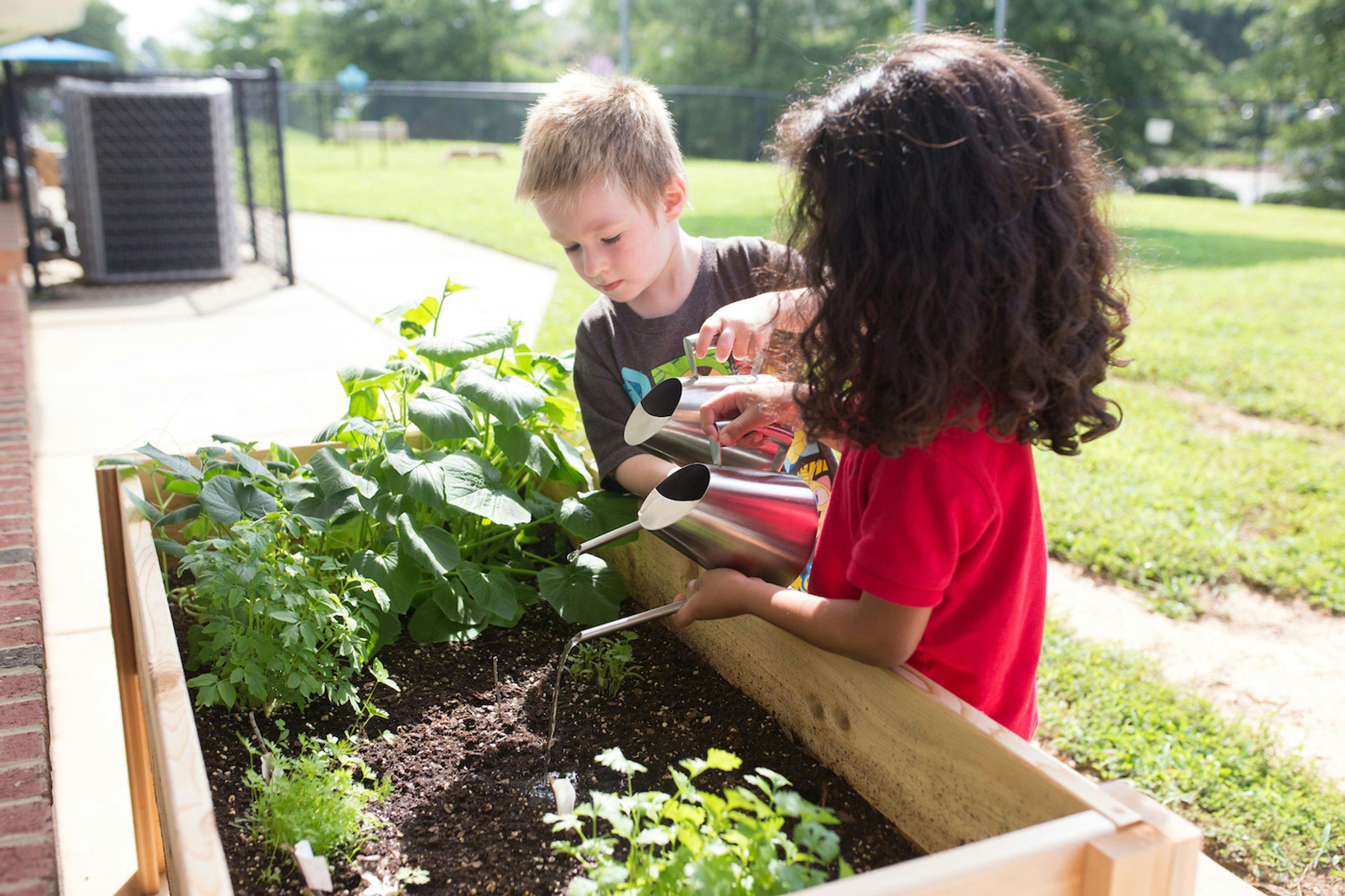Try These Age-Appropriate Chores
Children from a young age are willing and able to help with household chores. Our cultural norms may tell us otherwise, but with the tips below, your child can be helping with chores appropriate to their age and ability level in no time!
The Guidepost Team
If you're struggling to engage your child in household chores, two of the most common blockers are:
- Doing too much as the adult, which is so easy to do because, frankly, it's faster and more efficient! But, giving your young child plenty of time and space to try for themselves is what develops their independence, motivation, and ability to tackle multi-step processes.
- Not preparing the tools they need in order to be successful. Our homes are not prepared for a young child to help with practical tasks like sweeping, washing dishes or putting away clothing. Typically, these items are oversized and inaccessible. Defining a space and sourcing some child-sized tools is an effective way to spark their interest in helping more because they will feel more capable.
Early toddlerhood is an ideal time to begin
Many parents feel like they have to wait to tackle household chores until their children are occupied in some other way, creating a separation between what they feel has to get done and what they assume their child wants to do. However, children under the age of six are highly motivated to do real-world, every day activities as part of their drive towards "functional independence." There's no need to exclude them from household chores, and in fact, there are major benefits to intentionally including them!
While the idea of doing chores has a negative connotation to us — since it's work that we have to do for the end result — your child experiences it with a totally different aim. For them, they want to work for the sake of seeing how stuff works. It's fun for them, but it's also purposeful as they build up life skills like:
- ability to concentrate
- trust in their capabilities
- control of movement
- communication skills
- logic and order
- problem-solving
In Montessori, we call it Practical Life
In the same way your toddler will start to show interest in getting dressed and cooking real food, they will take great delight in joining you to clean the table, move the laundry, rake leaves, and water the plants. We actively nurture this interest through Practical Life, a key part of the early years Montessori curriculum.
Since we want to develop self-motivation — children who do things because they want to contribute, not just because someone else tells them what to do — then it's important to introduce practical life activities, or chores, in a way that is not forced or bribed. Instead, invite them to try with your guidance, observe their interests and capabilities, and encourage their efforts. That's it! Some other tips:
- Prepare first. Set up cleaning stations that make sense for each room of your house, or dedicate a cupboard where your child can go to find their cleaning supplies. Find smaller versions of spray bottles, brooms, rags and dust pans that are appropriate for your child's hands. Of course, keep all dangerous chemicals out of reach and give your child natural cleaning solutions instead.
- Be specific and clear. When prompting an invitation, avoid being too general with phrasing like, "Clean up!" Instead, be specific and break complex processes into smaller, achievable steps. "It's time to pick up the blocks. I'll get the basket. Can you place each one inside?"
- Show more than tell. Young toddlers can’t process when you’re talking and moving at the same time, and when you do use your words, they need more time to process and respond. Slowing down and refraining from talking when you’re modeling the steps will help your toddler focus.
- Stay neutral during mishaps and spills; they are not mistakes, but part of the learning process. It takes years of repetition for young children to move from acquiring these skills to mastering them. And, newly acquiring these skills will be messy! Stay neutral and model for your child how we handle mishaps. If it’s a spill, engage them in where to get a towel, how to wipe the spill, and where to put the soiled towel.
Here are some developmentally-appropriate household activities you can try:
Up to 18 months
- Wipe up spills with small cloth or mitt
- Put away blocks or toys in appropriate bins
- Fetch items like shoes, coat or hat
18 months to 3 years
- Place dirty clothing in hamper
- Dress/Undress with assistance
- Put garbage in trash bin
- Place toys/books on shelf when finished
3 to 6 years
- Sweep and collect debris
- Wash dishes / load dishwasher
- Place clothing on a drying rack
- Sort and put away clothing
- Prepare snack / help prepare meals
The Guidepost Team
The Guidepost Team is a group of writers and educators dedicated to helping demystify all things Montessori.
Sign up for our newsletter
Get started with our community today! Sign up for resources.
